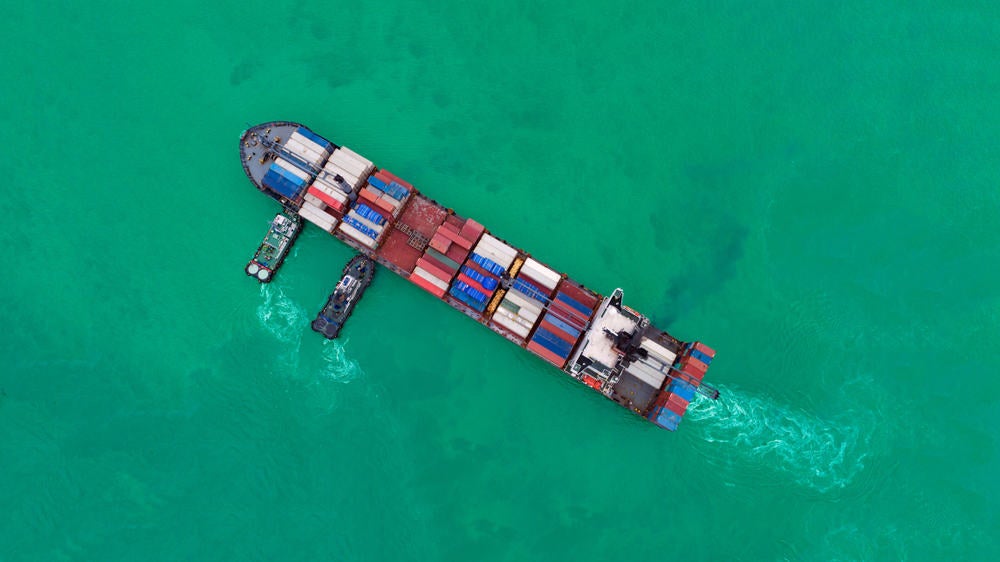
Good day,
As global supply chains are increasingly adopting technology into its processes, the threat of cyber attacks seems to have multiplied. The maritime industry is probably the worst hit, as its complicated and expansive processes make it an easy target for cybercrime. Last year, Maersk fell victim to a ransomware attack called NotPetya, which caused heavy losses to the shipping major to the tune of $300 million.
Last month, it was the turn of COSCO shipping to be hit by a cyberattack, which led to many of its offices around the world losing connectivity. Though it did not prove costly to COSCO’s operations, it needs to be understood that cyber threat is real and is growing. As per the Foreign Economic Espionage in Cyberspace report, the role of elements arising out of China, Russia, and Iran in destabilizing global trade is alarming, and marks the need for companies to strengthen its cybersecurity to fend off future attacks.
Did you know?
FreightWaves’ Ibrahiim Bayaan reported that U.S. GDP grew at a rapid 4.1% pace during the second quarter, as a rebound in consumer spending and continued strength in business investment helped drive activity. The economy was helped by a temporary boost from international trade, which helped offset a significant slowdown in inventory building.
Quotable:
“I often describe that as food traceability at the speed of thought—as quickly as you can think it, we can know it.”
– Frank Yiannas, vice president of food safety for Walmart while talking about using blockchain in food supply chains
In other news:
Tesla doubles loss, but burns less cash than expected
Electric-car maker finished the second quarter with $2.2 billion in cash. (WSJ)
Romaine lettuce recalled – again
Just weeks after romaine lettuce was deemed safe to eat, another recall has been placed on the produce for cyclospora concerns. (Food Logistics)
China’s empire of money is reshaping global trade
Xi Jinping’s new “Belt and Road” initiative is designed to promote economic development and extend China’s influence. (Bloomberg)
Supply chain leaders say top priority is responding to customers faster
Using advanced analytics can help with this goal, but many companies are not taking advantage of Big Data. (MH&L)
Can the world’s ports and terminals take the strain as container throughput rises?
“Cautious investor sentiment towards greenfield container terminal projects” could lead to steeply increasing box terminal utilization and a possible decline in port productivity. (Loadstar)
Final Thoughts:
Over the years, there has been a seesawing of decisions by the Saudi government towards opening up its state-owned oil company Aramco to an IPO, with the recent administrative consensus looking to not go ahead with the idea. The IPO was envisioned in early 2016, when Brent Crude prices had sunk to a historic low of $30 per barrel, and started gaining steam over the year to reach $50 per barrel when the Saudi government officially announced its plans. Aramco is valued at $2 trillion and planned to offer 5% of its stake at $100 billion.
Nonetheless, there were a lot of inconsistencies with the valuation of Aramco, now considered the world’s largest oil company. The problem lay in the fact that the company had never been audited over 38 years, and no one knew if the country had the oil reserves it said it had. There are enough reasons to suspect the claims, as Saudi Arabia’s daily oil production is quite near to what Russia produces, although Russia claims to have only one-third of Saudi’s oil reserves.
Also, the primary reason stated for the IPO was not due to desperation for financial support, but because Saudi Arabia wanted to diversify its economy. But getting investors interested in its offering would be difficult on two counts – one, because of the concerns of political stability in the Middle East and two, diversification in Aramco outside of Saudi Arabia is improbable as the company, however influential, runs all its operations within the country.
Hammer down everyone!
Stay up-to-date with the latest commentary and insights on FreightTech and the impact to the markets by subscribing.











